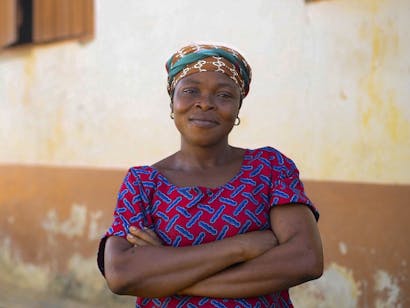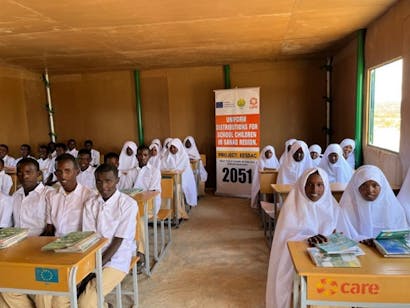Sékongo Dieneba is in shea butter production
Sékongo Dieneba, 45, lives in Dahokaha, a small village in the north of Ivory Coast. Her business is in shea butter production. She has been able to buy a motorbike for her business, so that she can be more time-efficient and access new markets.
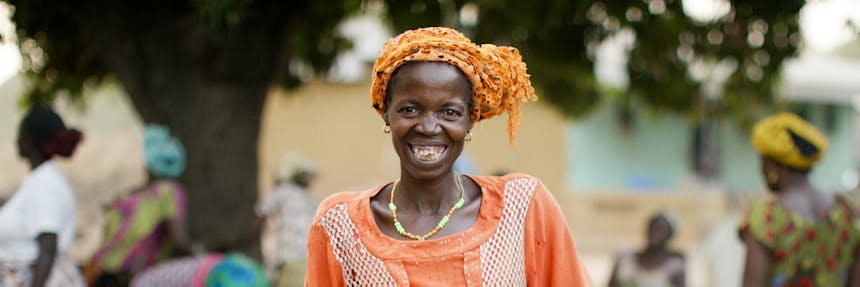
Sékongo’s business success is all the more pronounced when she speaks about her childhood, growing up as one of seven children: “I really suffered when I was little. I was born into a family whose parents couldn’t afford it. My father worked in the fields of his friends to have money to support the family, because he did not own land. Sometimes he went to other villages, which meant that he spent several days outside the village, and during these times our mother struggled to feed us. We grew up hungry. I didn’t go to school because our father couldn’t afford it.”
Sékongo is now married to the Chief of the village and has six of her own children. She is the main breadwinner and her income pays for the children’s schooling and supplies. She adds:“I don’t want my children to suffer like I did when I was a child. I want my children to succeed. I want my business to grow.”
When she was first married, Sékongo started to earn an income by making ‘Tchapalo’ a local dried fish, but soon realized that it was a lot of work for little income, so she switched to shea butter.
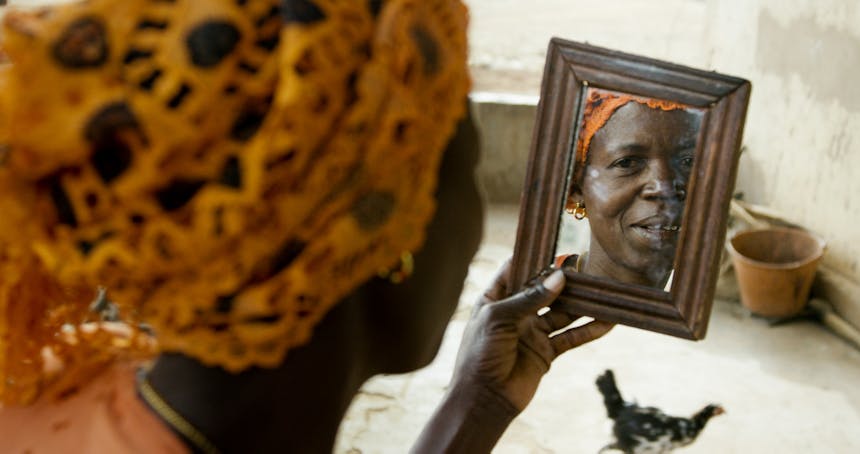
Women’s saving group
Sékongo is part of a women’s saving group in her village called ‘Yébê Yégnon’ she explains: “I’m very proud to work together in our group. Before, we each worked at home alone, but now we are a team, we do everything together. It’s thanks to my group that I feel we have really advanced.”
The group is based on CARE’s Village Savings & Loans Association model through which members invest small weekly amounts, and is self-run. Group members can take out loans and repay with small amounts of interest, enabling the collective fund to grow. Sékongo explains: “The first loan I had from the group was 10,000 FCFA (15 EUR) which I used to buy the shea which I sold. After I had paid off my loan, I took another loan to strengthen my business.” She adds: “Being integrated in a group is important, it is the group that will support you and enable you to grow faster – that benefits everyone. Thanks to CARE that we have been able to organize ourselves well. We are now more aware of our individual and collective abilities.”
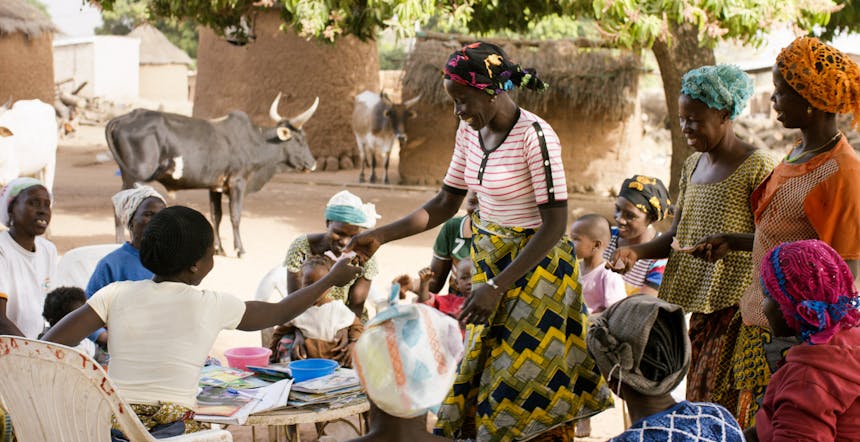
Sékongo and her savings group members are also part of a network of women who exchange goods. This means that when they need to increase the supply of shea butter, they can call on other women from neighbouring villages to help meet demand, this then works in reverse. The group have also become more confident with their sales price, she adds: “We sell good quality shea and we don’t sell our goods if the price is not right.”
Sékongo also enjoys the social aspect of being part of a group, adding: “When you have a problem like one of your children is sick, the group supports you financially and socially.”
A loan for a motorbike
As her sales have grown, Sékongo has been able to invest more in her business, she explains: “There is no milling machine in our village to make powder from the shea kernels. Before, I was having to carry heavy loads on my head to the mill in the nearest city of Sinematiali, which was exhausting. At first I was able to buy a bicycle, but then I bought a motorbike, which really helps me with the business.”
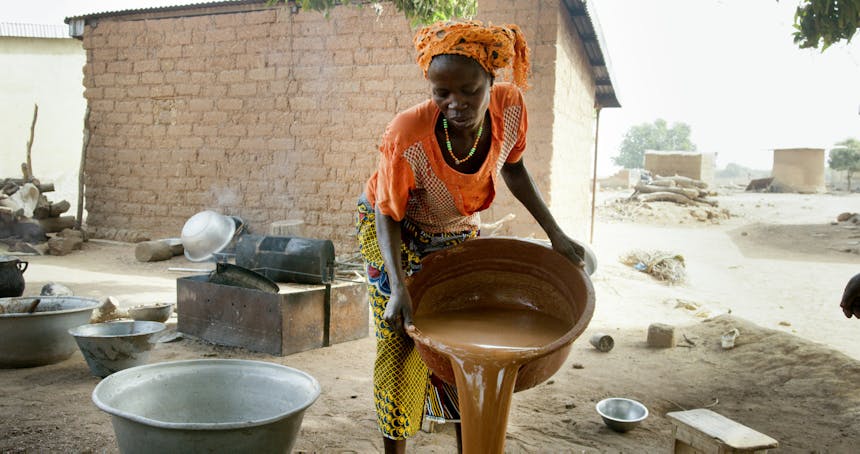
Now that Sékongo has experienced taking out a small loan, she has more confidence to seek a more formal business loan: “Before we had this negative understanding of the bank because we thought that having a loan from the bank was equal to going to prison. Today, thanks to the training that CARE gives us, we better understand and we have the courage to go to the bank and ask for a loan. I know that I will be able to repay. But first, I would like to have my own bank account.”
Women empowerment
Getting support from the men in their community was initially a challenge for Sékongo and her peers, she explains: “When I started my business, my husband did not agree. He wanted me constantly in the field with him as he saw this as the only way of earning an income. Today he admits that it is thanks to my activities that we are able to meet the needs of our family. He says I’ve always been stubborn and I just do what I want!”
She continues: “Our husbands are all proud of us today. They changed their mentality when they saw us taking charge of household expenses. In large part, it is because of women that many of the children in this village go to school.”
Women often come to her for advice and she tells them: “A woman must get up and fight. It’s very important for my sisters to carry out an activity that brings her an income, she must be responsible and autonomous. What a man does, a woman can do just as well. When you start you will encounter difficulties, even conflicts, within your household, but you should not be discouraged. Stay focused on your goals and believe in yourself. When you succeed the same ones who were trying to discourage you will be on your side.”
